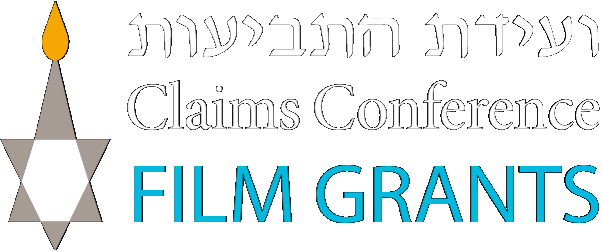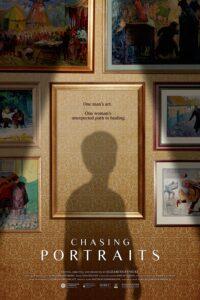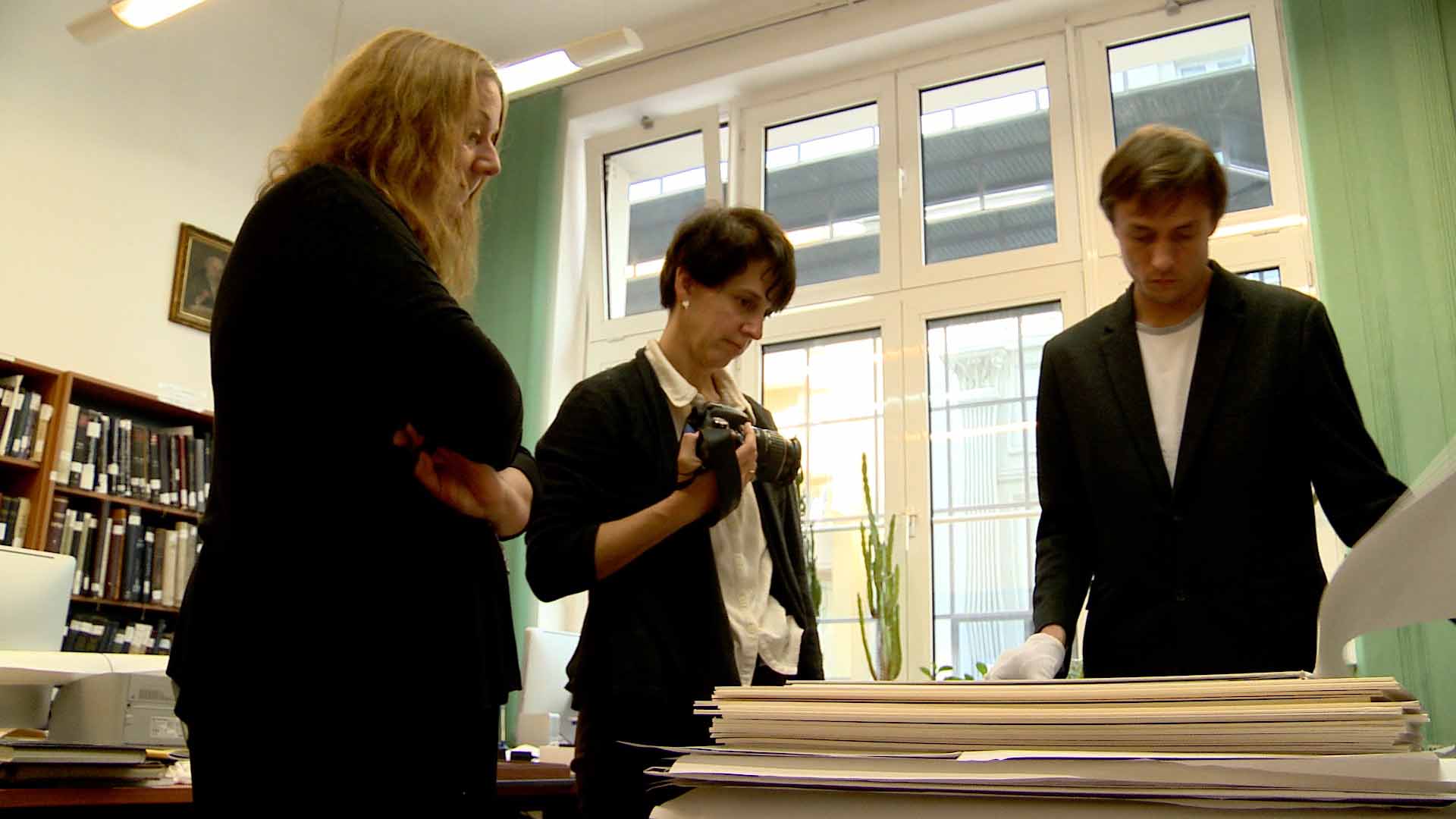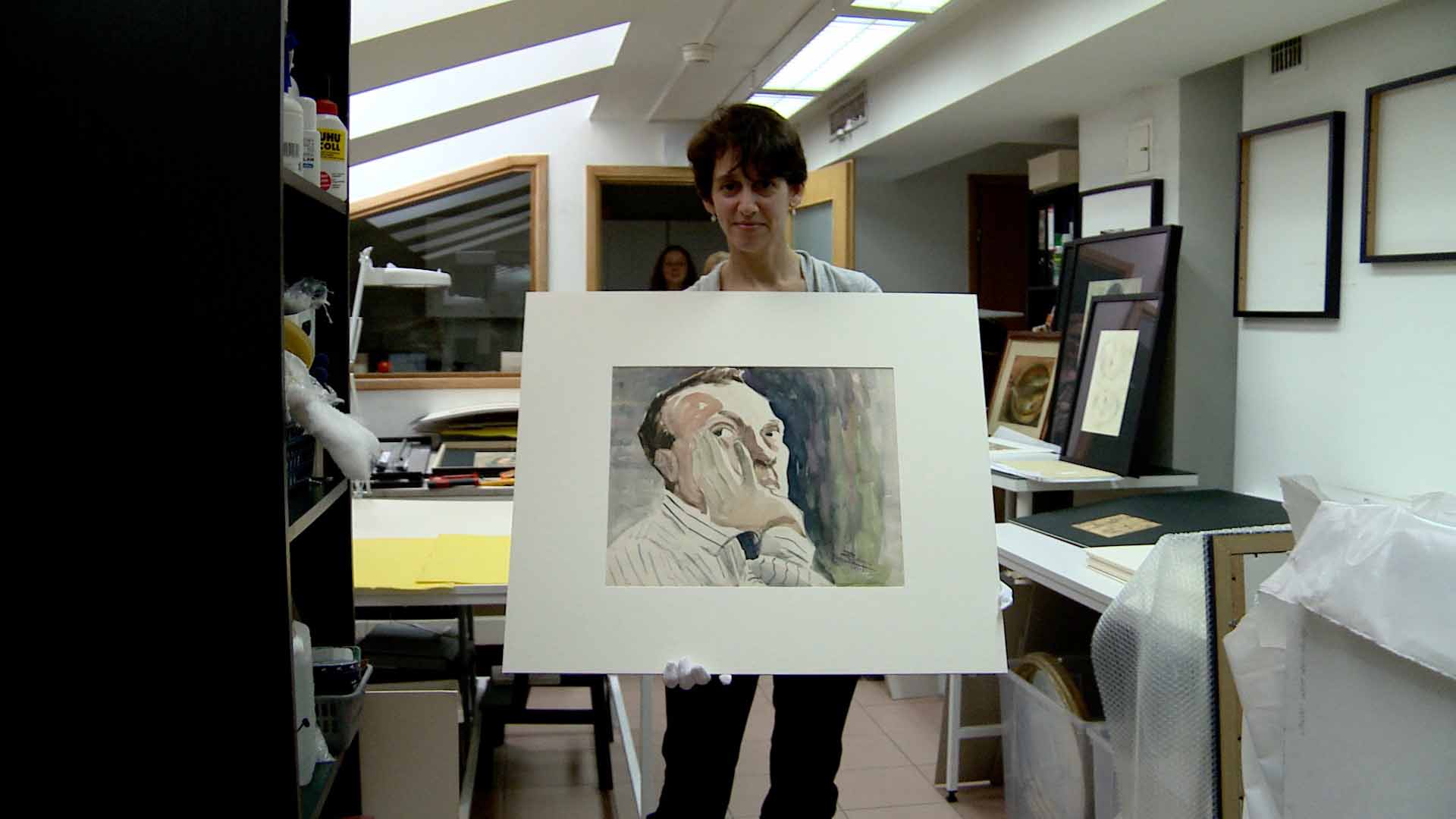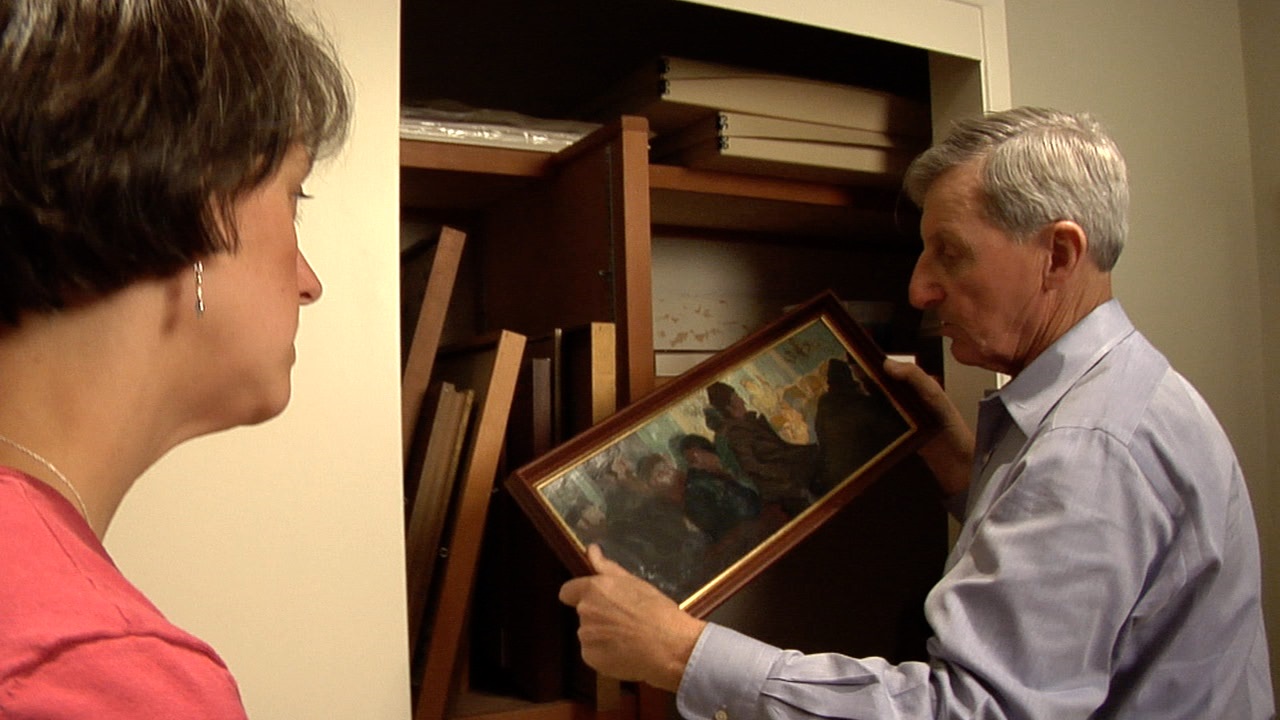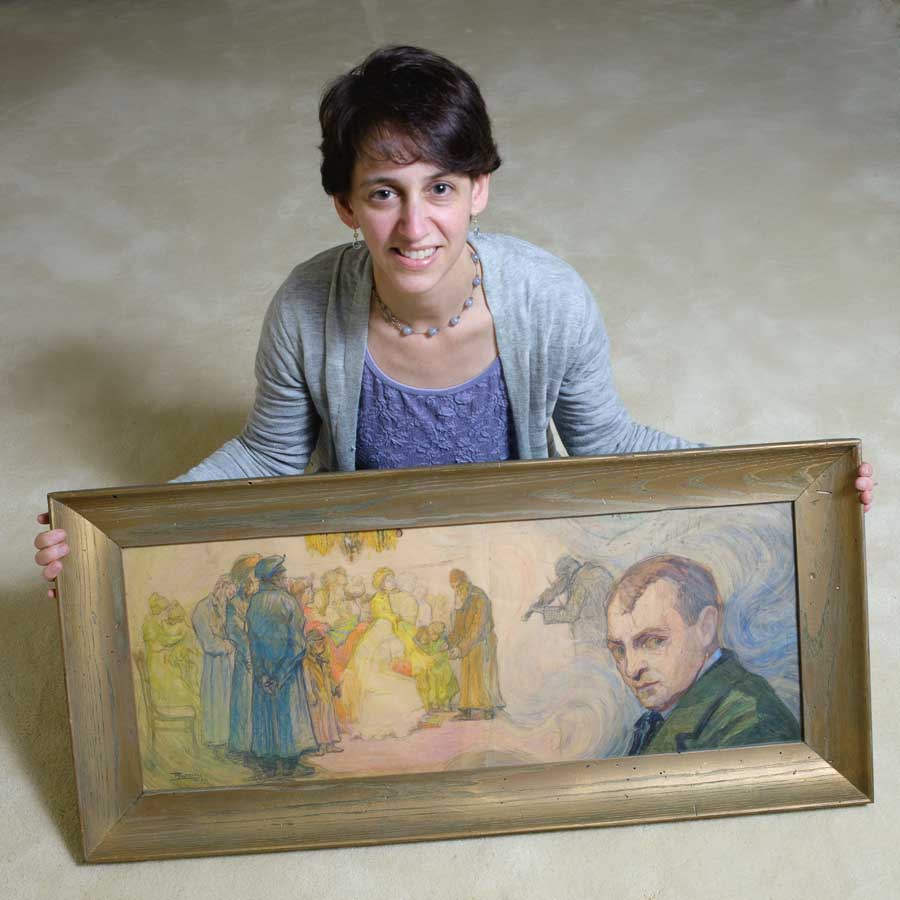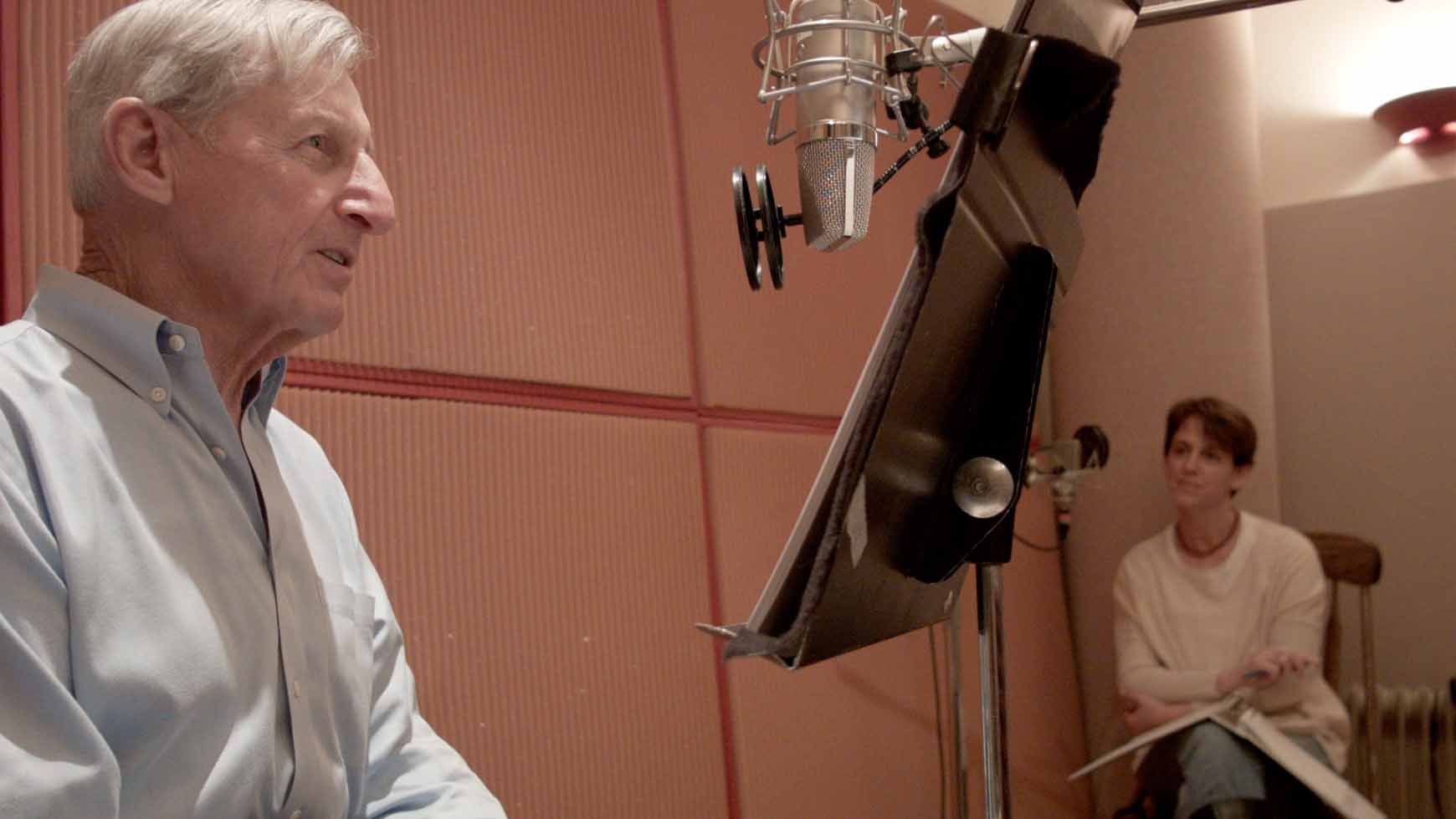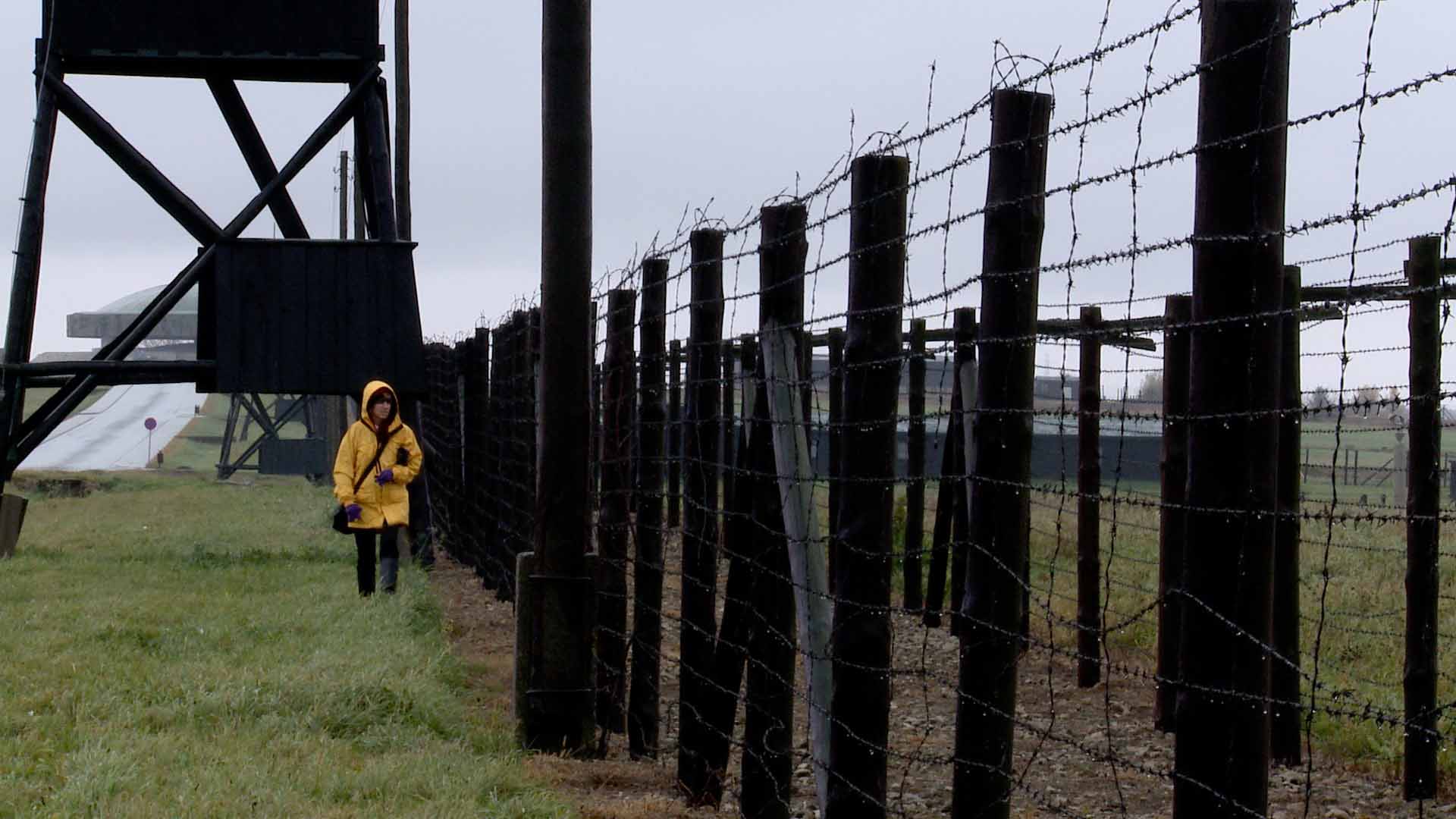One man’s art. One woman’s unexpected path to healing. An American woman’s emotional quest to find the art of her Polish-Jewish great-grandfather, lost during World War II.
Synopsis
Moshe Rynecki (1881-1943) was a prolific Warsaw based artist who painted scenes of the Polish-Jewish community in the interwar years. Sadly, he was murdered at Majdanek. After the Holocaust, Moshe’s wife was only able to recover a small fraction of his work, but unbeknownst to the family, many other pieces survived. For more than a decade his great-granddaughter, Elizabeth Rynecki, has searched for the missing art, with remarkable and unexpected success. Spanning three generations, this documentary is a deeply moving narrative of the richness of one man’s art, the devastation of war, and one woman’s unexpected path to healing.
About the Director
Elizabeth Rynecki is the great-granddaughter of Polish-Jewish artist, Moshe Rynecki (1881-1943). She grew up with her great-grandfather’s paintings prominently displayed on the walls of her family home and understood from an early age that the art connected her to a legacy from “the old country”: Poland. In 1999, Elizabeth designed the original Moshe Rynecki: Portrait of a Life in Art website. Elizabeth has a BA in Rhetoric from Bates College (’91) and an MA in Rhetoric and Communication from UC Davis (’94). Her Master’s thesis focused on children of Holocaust survivors. Her book, also titled CHASING PORTRAITS, was published by Penguin Random House in September 2016. The documentary film had its world premiere in 2018.
Artist Statement
I grew up surrounded by my great-grandfather’s paintings; they were prominently displayed on the walls of my family home. I understood from an early age that his art connected me to a history that, while not exactly my own, still overshadowed my life. When I started the project, it felt critical to me to document the history and share the art. It’s been eye opening to see how contemporary politics and a significant increase in anti-Semitic incidents around the world have enhanced the importance and relevance of the film for today’s audiences. My documentary is focused on my great-grandfather’s art and my quest for his lost paintings, but inevitably draws attention to larger themes about the long reaching impacts of war and what it means to be a refugee. I feel like the film is a statement not only about my great-grandfather’s art and issues surrounding Holocaust era looted art, but about the role of art and the artist.
I’m often asked why I am not a claimant fighting for the return of my great-grandfather’s paintings. My great-grandfather painted because he was passionate about the Polish-Jewish community and he wanted to record the people he knew and loved. Getting paintings back is only one form of justice. Being able to share my great-grandfather’s art with others is a form of social and historical justice. Seeing audiences discover his work feels like an enormous win.
I hope that after seeing my great-grandfather’s art, audiences will love it and gain a better understanding of the rich and vibrant world of Polish-Jewish art that was lost during the war. If the film inspires audiences to be curious about their own family history, that would be ideal. I also hope that by sharing my own personal experiences navigating my family’s Holocaust legacy, audiences will begin to see how the effects of war cascade down to subsequent generations.
Festivals, Screenings, & Awards
San Francisco Jewish Film Festival
Toronto Jewish Film Festival
New York Jewish Film Festival
Boston Jewish Film Festival
